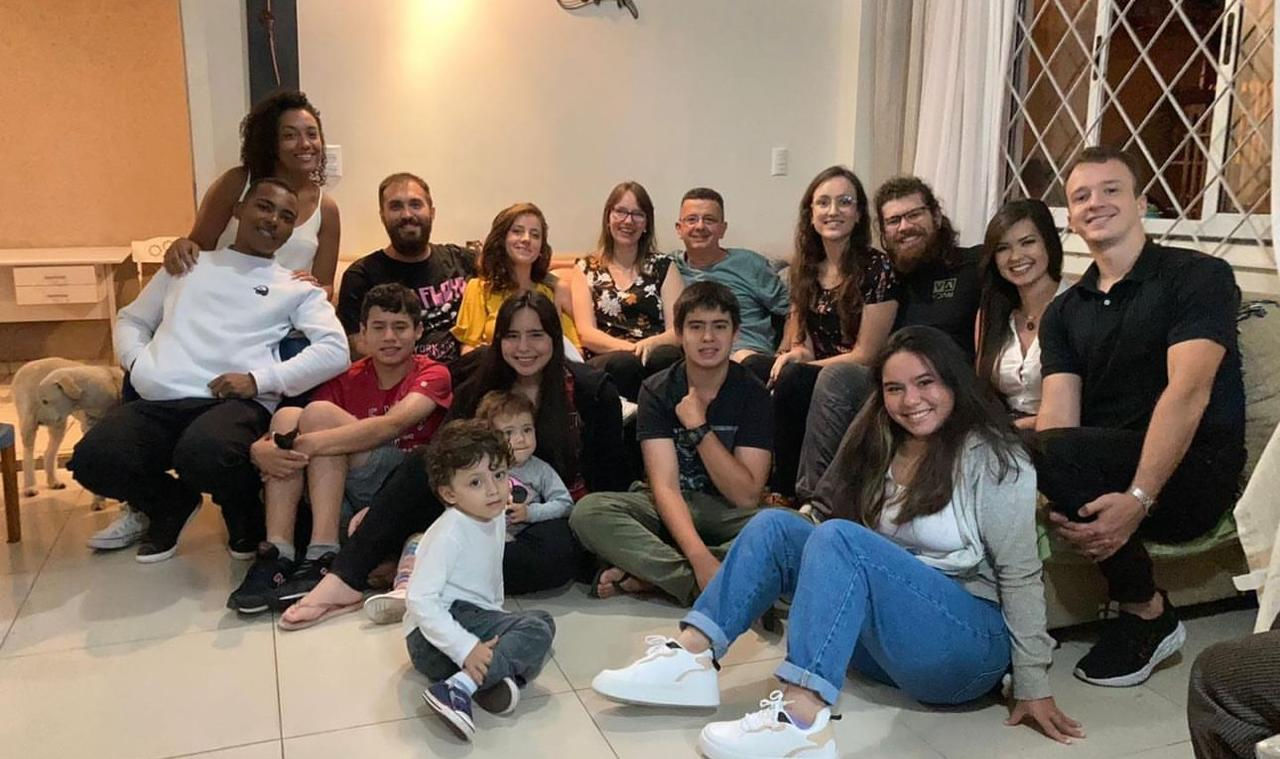More teens, siblings and children with health issues are being adopted in Brazil than ever before. Encouraging research in Brazil shows that the collaborative efforts of the Brazilian government and the National Association for Adoption, which includes more than 210 non-profits organizations (like Pontes de Amor and many other WWO Brazil partners) are turning the tide in these adoptions.
Ingrid and Marco Mendes, already parents to two girls and a boy, the youngest being 18 years old, were one of those who made the life-changing decision to adopt five siblings.
“I didn't know there were these kids and teenagers in Brazil. (who needed to be adopted) But one day walking in the center of Curitiba, we saw some posters written: the UNADOPTED ONES,” said Ingrid. “Every poster told what the child liked to do and what made him/her unadopted'.

We decided then to adopt up to three teen siblings, but when we met the five siblings, we were not brave enough to separate them. At the time, we detected no illness. Over the years, we realized that three of them had more difficulty in learning and were diagnosed with cognitive issues.”
The five siblings had spent six months in a residential home for orphaned and vulnerable children before Ingrid and Marcos adopted them. Ingrid says she found that one of the advantages of adopting brothers is that one of them will communicate better and makes it easier to get closer to them all.
“One of the advantages to adopting older children is that you can have dialogue with them and it’s easier to identify their needs,” said Ingrid. “I have lived fully for my children for many years, as expected with any mother and after 11 years with my kids, I say if I could go back, I’d do it all again. The challenges are great, but the joy and the sense of achievement are much deeper.
Many adoptees prefer smaller children because they want to see the child's first experiences. But even adopting bigger kids, we live first experiences because it'll all be the first time with us. It's very exciting. The important thing is to have the heart open to listen to our children and have the willingness to broaden our vision and our heart.”
Sara Vargas, Pontes de Amor, and WWO Regional Ambassador, Brazil, says more parents, like Ingrid and Marcos, being willing to adopt older children and sibling groups is crucial because it provides a chance for those who are the most vulnerable to receive love, a safe home, and healing for mental and health issues that stem from past experiences.
“Most Brazilian adoptees desire to adopt a healthy child under eight or nine years of age, with no siblings,” said Vargas. “Unfortunately, many children who are suffering from serious violation of their rights, such as violence, abuse, and neglect are not seen until they are already in school and are over seven years of age. Many already have siblings. They share a very close attachment and separating them causes even greater harm. There are currently about 35,000 people who want to adopt in Brazil and 5,000 kids who need to be adopted, but most of them have siblings, health issues and are older than nine years old. That’s why many of them stay in residential homes until they are 18 years old and can live on their own.
However, this can leave them vulnerable and without family as they grow into adults. Working together as a network, we can find ways to protect and help these children earlier. Through family strengthening we can help avoid additional trauma, prevent additional unwanted pregnancies for their biological mother and place vulnerable children and teens in an adoptive family when reunification with their biological family isn’t possible. “
